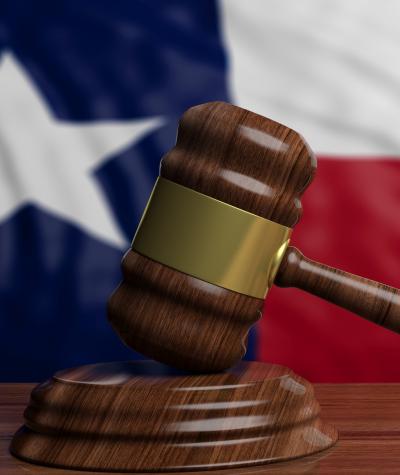In a major win for transparency and accountability in Texas, the Texas Supreme Court has declined to hear an appeal of a case challenging the legitimacy of the Texas Ethics Commission.
For more than 30 years, the Texas Ethics Commission has deterred public corruption in the Lone Star State and provided transparency in elections by enforcing the state’s ethics, campaign finance and lobbying laws. The court’s ruling ensures that this important institution can continue protecting the public’s trust.
The case has roots in 2014, when Michael Quinn Sullivan, and his organization, Empower Texans, Inc., initiated a lawsuit to challenge a $10,000 fine levied against Sullivan for failing to register as a lobbyist.
In addition to challenging the fine, Sullivan argued that the enforcement powers granted to the Texas Ethics Commission by the state constitution and the state legislature were unconstitutional.
The barrage of litigation that followed over the next decade called into question not only the legitimacy of the ethics commission as an enforcement body, but also the constitutionality of the lobbying disclosure and registration laws it is tasked with enforcing.
A key argument asserted by Sullivan was that the Texas Ethics Commission was a legislative branch agency, and therefore did not have the constitutional authority to enforce laws regarding political expenditures and lobbying. Sullivan also tried to portray Texas as an extreme outlier in its regulation of lobbyists.
CLC filed two amicus briefs in support of the Commission, one in the lower appeals court and one in the Texas Supreme Court. As CLC’s briefs explained, the Commission's authority comes from the Texas Constitution, which explicitly authorizes the state Legislature to delegate to the Commission the “powers and duties” necessary to achieve political transparency and protect the integrity of Texas state government.
The denial of certiorari — a decision to not review the case — by the Texas Supreme Court effectively ends Sullivan and Empower Texans’ case and preserves the Texas Ethics Commission’s authority to enforce Texas’ ethics and transparency laws.
The favorable resolution of this case is important to state ethics commissions nationwide because it confirms how instrumental both commissions and the laws they administer and enforce are in ensuring government accountability.
Ethics commissions help increase voter confidence in policymakers and political institutions. Forty-six states have ethics commissions and 36 of those states have granted their commissions broad jurisdictional authority over state executive branch officials and legislators.
Every state in the nation has some form of lobbying registration and reporting measure on their books: These laws shine a light on and combat pervasive problems and scandals relating to lobbyists’ transactional relationship with lawmakers.
Across the country, voters, legislators and courts have seen that strong political transparency laws are essential to protecting the public’s interest in open and accountable government. This decision bolsters the Commission’s ability to enforce the campaign finance and lobbying disclosure laws that help preserve the public’s trust in government.

